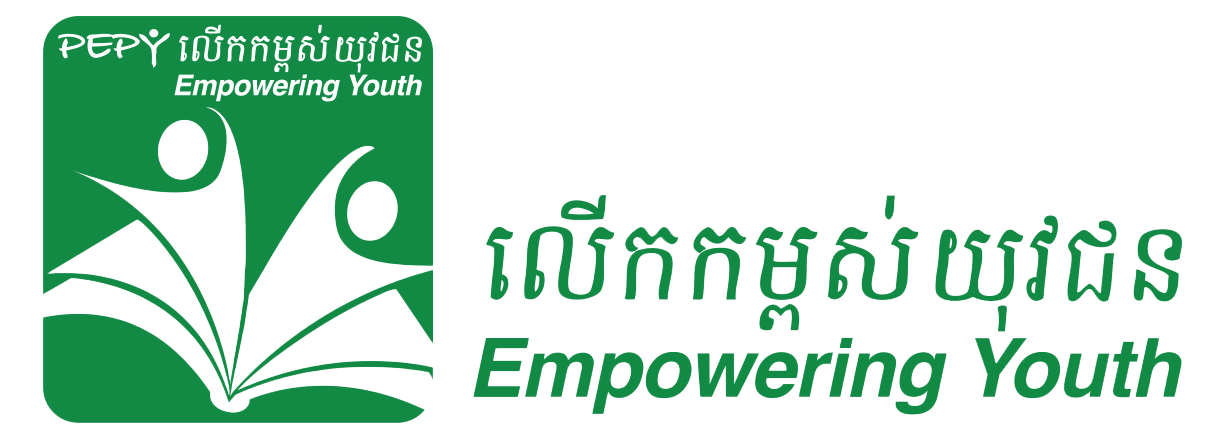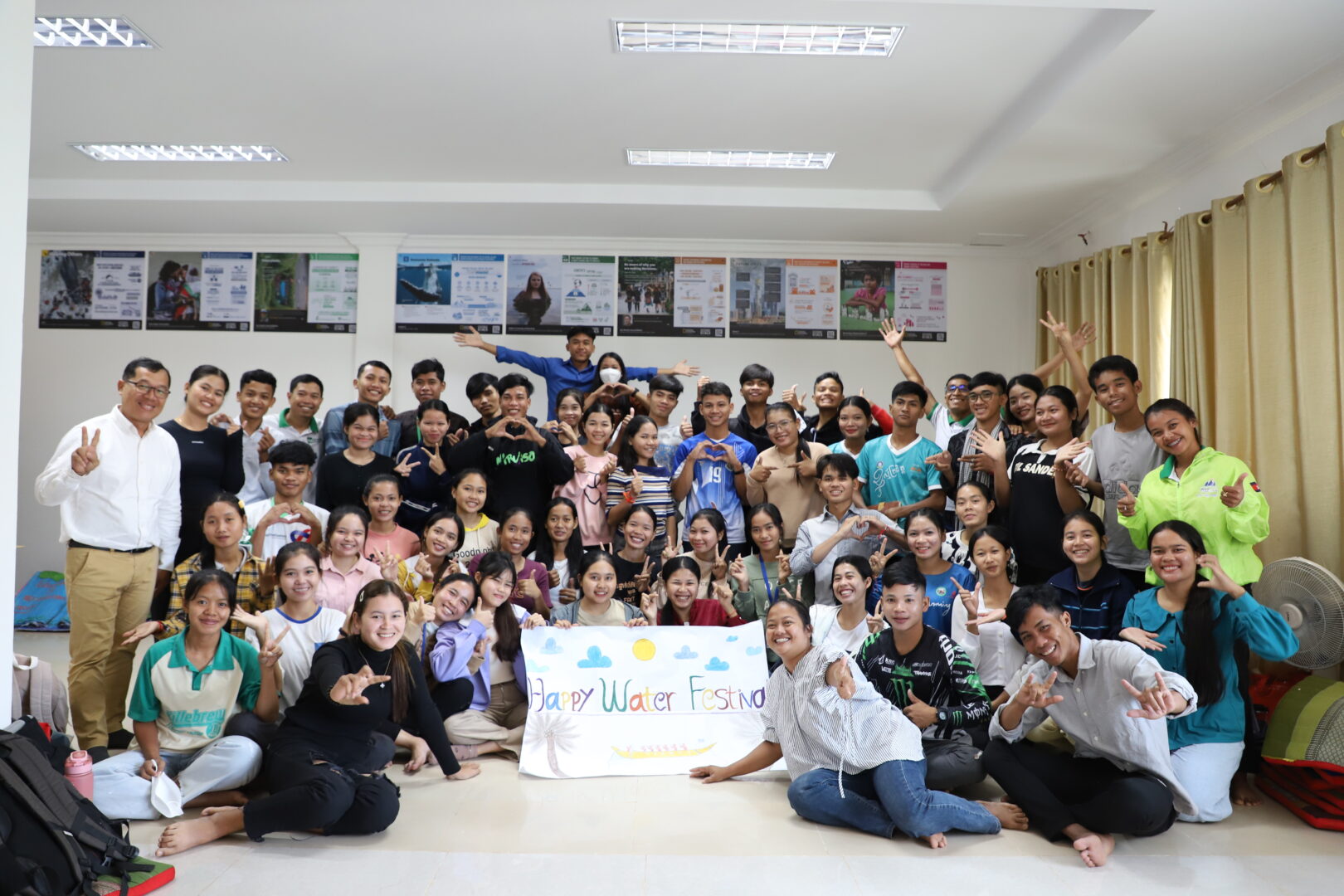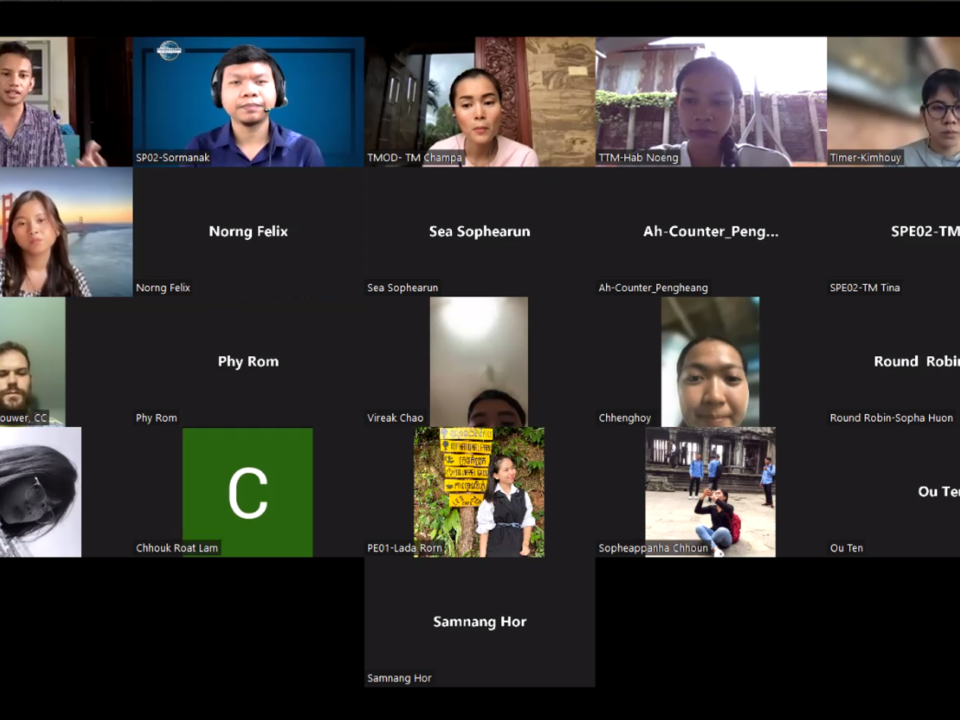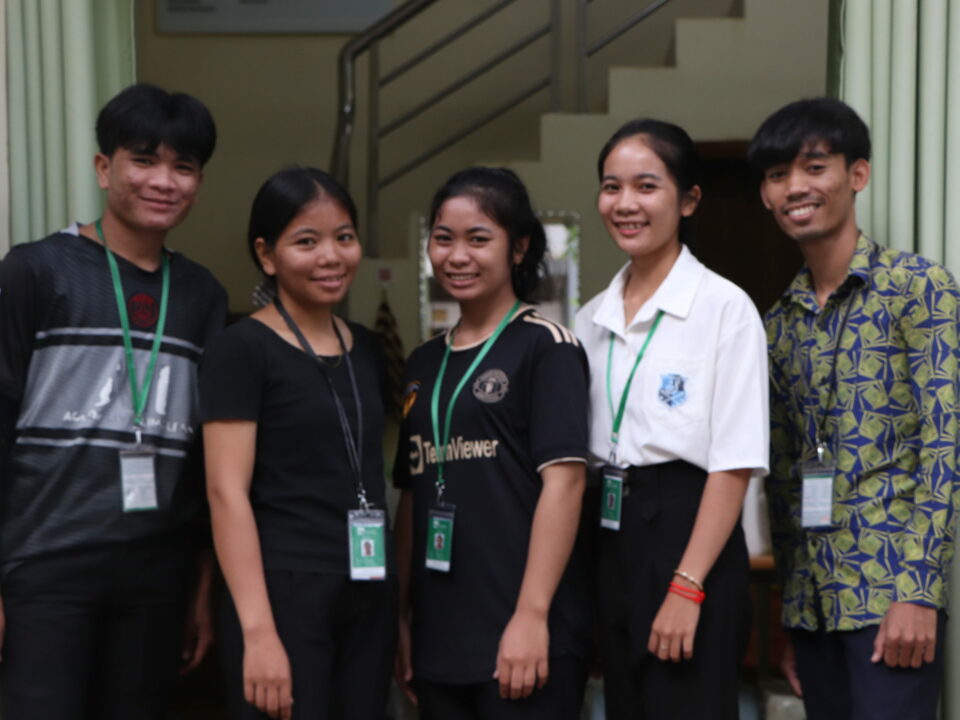Why Join Computer Class When You Can Get Creative?
November 27, 2009PEPY by the Numbers in 2009
December 12, 2009About a year ago I was speaking about life goals with Riem Noun, a contract teacher working at Preah Lean who was also one of PEPY’s part-time literacy teachers. Like most contract teachers Noun had never completed high school, and was recruited as a contract teacher due to the teacher shortage in the area. With less than half the salary of some government teachers, no formal training, and no opportunity for job mobility, most contract teachers have a fairly bleak career outlook. Nevertheless, Noun just showed a wide smile, as he shared with me that he dreamed of being a full government teacher, perhaps even a principal or an administrator. As we talked about ways to achieve his goals, his smile dropped and he shook his head aggressively—it’s not possible, he told me. I learned that even though contract teachers can work in remote areas for several years–even decades—they have few hopes of becoming government teachers, with full salaries, benefits, and opportunities for leadership positions. In order to become a government teacher a contract teacher would need to complete his/her high school degree, pass the teacher training college exam, attend two years of training, and then pass the exit exam. While none of these is impossible for those as motivated and engaged as Noun, the problem was in the first step—finishing high school. Noun had never heard of anyone from the area dropping out and after several years then completing their degree.
About four months ago the PEPY team met with the District Office of Education in Kralanh. We learned that the District had in the past offered a high school equivalency course on weekends, but wasn’t sure it would continue this year due to the low number of students, and their low rates of success passing the end of year exam. The course costs 50 dollars per year for students, nearly two months’ salary for contract teaches in the area. This paid for the course teacher’s salary, and government fees for retaking the standardized examination. After a short conversation, we agreed that if the District offered the course again, we’d provide partial scholarships to teachers interested in trying to complete their degrees.
I expected that perhaps 3 or 4 teachers would join Noun. Though I knew that there were dozens of contract teachers in the area, and government teachers who had failed their 12th grade exam, I also knew that teachers were busy, and even if we supported a scholarship for the course simply getting to Kralanh and back each week was a significant expense.
Yesterday, Ratana, PEPY’s Education Program Manager, showed me a list of 19 individuals who applied for a PEPY scholarship for the course! They span Kralanh district, and include government and contract teachers from 7 schools as well as young people from the area. We are thrilled to be able to support such motivated individuals. The scholarships will support between 50% and 80% of each person’s tuition fees, based on their needs, and include additional tutoring time through PEPY staff. Why aren’t we supporting 100% for those in need? Based on our experience in Cambodia, we’ve seen firsthand that “giving” things simply doesn’t work, so instead we develop programs that support people’s needs yet also require individuals to invest personally in those things they value (for more on why we believe this, read more here).
In addition to paying a small portion of the fee, which can be done over the course of the year as a micro-loan, PEPY is also asking all those who receive a scholarship to mentor a younger student in their community, committing 10 hours each month to working with a young student in need of extra assistance in literacy or math.



